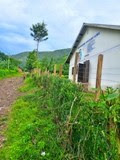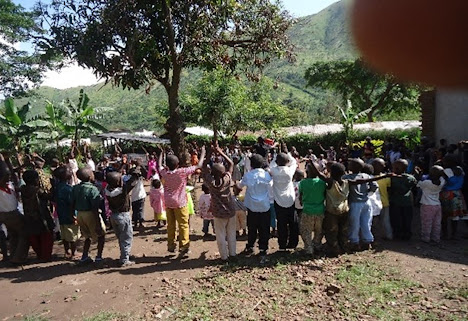Update on our Farmer Livelihood and Resilience to Climate Change (FLRCC) program.
Project Overview:
RRHS, with support form Kiima Foods NGO has implemented the FLRCC program in the Kibolhu village. The project focuses on driving transformations in agriculture and tackling the root causes of climate change, food insecurity, nutrition security, poor ecosystem health, poor household hygiene and unsustainable incomes at household level in the project targeted communities.
Project Goal:
"To strengthen smallholder farmers livelihoods and improve their resilience to climate change and increase incomes of 80 smallholder farmers through the adoption of Climate Smart Agriculture technologies and practice."
April Action (background):
Increased demand for water due to low rainfall can cause water sources including boreholes and springs to run dry. Conversely, heavy rainfall and flooding can damage water sources and sanitation facilities, carry run-off, and waste into streams and lakes, and contaminate the water supply. Alternatively, flies from human faeces cause diseases to not only selected homes, but to both the homes of the poor and rich.
 |
| Most families live without pit latrines. |
Kigoro 1 Parish Rukoki subcounty is one of the parishes where most families live without pit latrines. Based on the scope of health education, RRHS partnered with Student Nurses Rwenzori School of Nursing and Midwifery. Surprisingly, some households were running away fearing to interact with student nurses. Nevertheless, we achieved our goal of fourteen days of community nursing. We concluded with a well focused Health Education talk that targeted key stakeholders, and it comprised of demonstrations on open free defecation and water purification.
 |
| Nurses carrying out educational talks. |
The Difference Between Hygiene and Sanitation:
During the focused health talk, we discussed that both hygiene and sanitation are crucial in maintaining good health and preventing dangerous disease as they both aim for cleanliness. The commonly used phrase when talking about hygiene is 'personal hygiene'. Since hygiene mainly relates to the human body, maintaining good personal hygiene helps prevent the spread of pathogens among people. Sanitation mainly relates to:
- Safe disposal of human urine and faeces
- Food sanitation, since food can easily pass the pathogens into the community
 |
| Water structures. |
 |
| Student nurse seen documenting the as-is health situation at one of the household kitchens. |




































